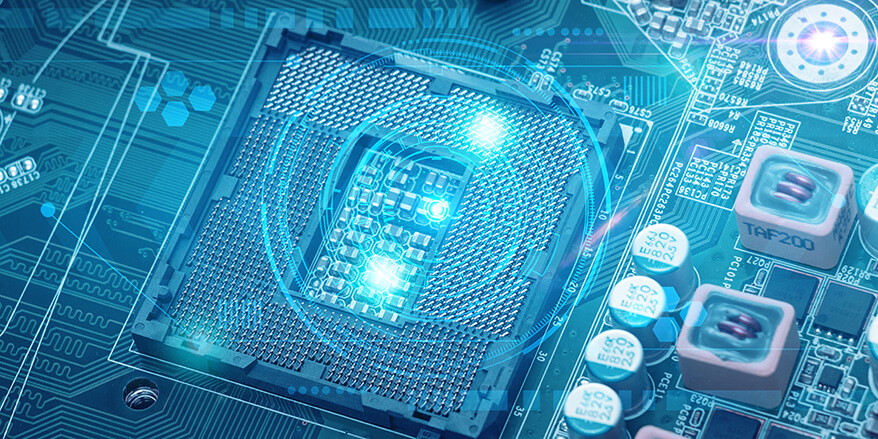Li ion Battery Recall – Why and How?
Sep 03, 2019 Pageview:1468
Introduction
Lithium-ion batteries, also known as Li-ion batteries, are very popular across the globe right now. They are the most preferred choice in consumer mobile devices due to their high capacity, higher energy density and longer battery life. As consumer electronic devices are becoming smaller and smaller, the lithium-ion batteries that are used to power them are becoming even more powerful. Manufacturers of electronic devices such as laptops, digital cameras, cell phones and toys are constantly looking for compact and powerful batteries that will be the energy source for these gadgets. Lithium-based batteries are smaller and more compact but more powerful compared to their countertops. There are so many good things to say about these batteries, and the most important one is that they have made our lives easier to a great extent. However, there is some negative side to the li-ion batteries. They tend to explode and even cause a fire that can be very fatal. We have had cases where the well-known brand had to recall their manufactured devices due to risks of lithium-ion battery failure. Companies like HP, Samsung and Apple have in recent years recalled their electronic devices due to lithium-ion battery failures. Lithium-ion battery recall is not a new thing, it started when this type of battery technology was very new and Sony had to recall their li-ion batteries.
Li ion battery recall cases
There have been several instances of lithium-ion battery recall cases. Well-known brands that manufacture electronics that are powered by lithium-ion batteries such as laptops, cell phones, digital cameras and even electric vehicles have had to recall some of their manufactured products due to several cases of li ion battery failures. Lithium-based batteries are everywhere and billions of them are manufactured every year. With these huge numbers, there have been cases of battery failure some of which have led to explosions and fire which cause property damage and even personal injury. Let’s look at some of the popular li ion battery recall cases.
There is the HP recall case whereby HP is voluntarily recalling the lithium-ion batteries used in some of its HP notebooks and mobile workstations. Problems with the lithium-ion batteries emerged after eight people reported battery packs overheating, melting or charring, according to the US Consumer Product Safety Commission. This recall affects about 50,000 devices purchased in the United States and 2,600 machines purchased in Canada. They are said to be sold online and in brick-and-mortar retail stores from December 2015 through December 2017. The affected lithium-ion batteries also are said to have been sold as accessories and provided as replacements through HP and authorised service providers.
This HP li ion battery recall affects certain models namely: HP ProBook, HP x360, HP Pavilion, HP Envy and HP 11 Notebook. Also, it affects a few models in the HP ZBook line of mobile workstations. HP has listed all of the affected models on the HP Computer and Mobile Workstation Battery Safety Recall and Replacement Program web page.
You need to note that not all the batteries in the affected models are part of this recall. if your device is one of the models listed on the recall web page, you are required to run a utility to determine whether its battery is defective. The utility can directly be downloaded from the recall web page.
If you confirm that your device is part of the recall, HP recommends that you run an update that puts your device into a feature that is known as “Battery Safety Mode”. This update simply discharges the battery and disables future charging until the battery is replaced. You will still be able to use your device by using an AC power adapter. HP will provide you with a free replacement battery as well as battery replacement services by an authorized technician at no cost this because many of the affected models’ batteries are internal and therefore should be replaced by qualified and authorized technicians.
There is also the Fujitsu recall. Fujitsu is voluntarily recalling the lithium-ion batteries used to power some of its laptops. The company states that under certain conditions, the batteries can ignite and cause a fire. Fujitsu claims that approximately 6,400 affected devices were sold online between July 2012 and December 2017 and some batteries were sold separately.
The Fujitsu recall affects several models of the Lifebook and Celsius line of laptops. Fujitsu has a recall web page where you can find a complete list of the affected models on the Important Safety Recall – Fujitsu PC Voluntary Battery Recall and Replacement web page.
Not all the batteries in the affected Fujitsu models are defective. If your model is among the listed ones on the recall web page, you are required to download and run a utility to see whether your device is using one of the defective batteries. Alternatively, you can remove the battery and check its serial number because the batteries in the Lifebook and Celsius laptops are not internal. If your battery is part one of the recalled ones, Fujitsu will provide you with a free replacement which will be shipped to you. While it’s being shipped, Fujitsu recommends that you remove the defective battery and use an AC power adapter to power your device.
Dell is also recalling approximately 4.1 million notebook computer batteries because of the high risk of erupting in flames, according to the company. This will be the largest safety recall in the history of the consumer electronics industry according to the Consumer Product Safety Commission. Dell, the world’s largest PC maker, stated that the lithium-ion batteries were manufactured by Sony and were installed in notebooks sold from April 2004 to July 18 2006. Dell reported that the problems were as a result of a manufacturing defect in batteries made by Sony. According to the safety agency, the said lithium-ion batteries’ problems were not unique to Dell, meaning that other computers using Sony batteries might also have to issue recalls.
Apple had to recall about 1.8 million batteries that use Sony’s battery cell technology. The recall was because of the risk of fire. The affected users are those of its iBook G4 and PowerBook G4 laptop models sold between October 2003 and August 2006. Apple had received nine reports of batteries overheating including two cases in which users reported minor burns and property damage. However, no serious injuries were reported.
Trends in li ion battery recalls and risks of transport
There has been a rise in the number of lithium battery products. The safety and potential hazards of the li ion batteries have greatly attracted more media, legal and regulatory attention. However, lithium-based batteries are safe to use and have been approved for consumer use. But with billions of these batteries among consumers everywhere in the world, failures are bound to happen. Historically, there have been several battery-related recalls each year. The number of recalls has sharply increased in recent years. For instance, in 2016, there were over twenty recalls, half of which included the hoverboard and smartphone recalls involving lithium-based batteries overheating and posing a fire hazard.
Additionally, the transportation of lithium-ion batteries is increasingly garnering significant attention as there have been reports of lithium batteries overheating, catching fire or even exploding when disturbed or exposed to various conditions during transport. The U.S Department of Transportation (DOT) guidelines prohibit air shipments of any lithium battery products recalled for safety reasons.
How to reduce li ion battery recall
Lithium-ion battery-related recall can be reduced. Companies that use lithium-ion batteries in their products should test and double test their battery-powered products before releasing them to the market. One should not rely solely on established voluntary standards, but rather think carefully about how the battery integrates with the product. Companies should at least implement several things including a circuit board that contains battery management electronics to prevent overcharge, a positive thermal coefficient (PTC) including a plastic piece that expands when heated, causing conductive materials to separate under high current conditions, and a current interrupt device (CID) that activates and disables the battery under high pressure. These protection mechanisms can help reduce li ion battery recall.
Conclusion
Recall of lithium battery-powered products has been happening since the technology was first introduced to the world. The well-known companies that manufacture electronics that are powered by li-ion batteries have had to recall some of their products due to safety reasons. These recalls are very expensive to the affected companies and can be reduced through the implementation of battery protection mechanisms.
Leave Message
Hottest Categories
-
Hottest Industry News
-
Latest Industry News











